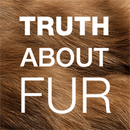September News: Fur Bans that Aren’t Really Bans
by Truth About Fur, voice of the North American fur tradeTwo fur “bans” that aren’t fur bans grabbed the headlines in September. Even if there’s just a smell of a…
Read More
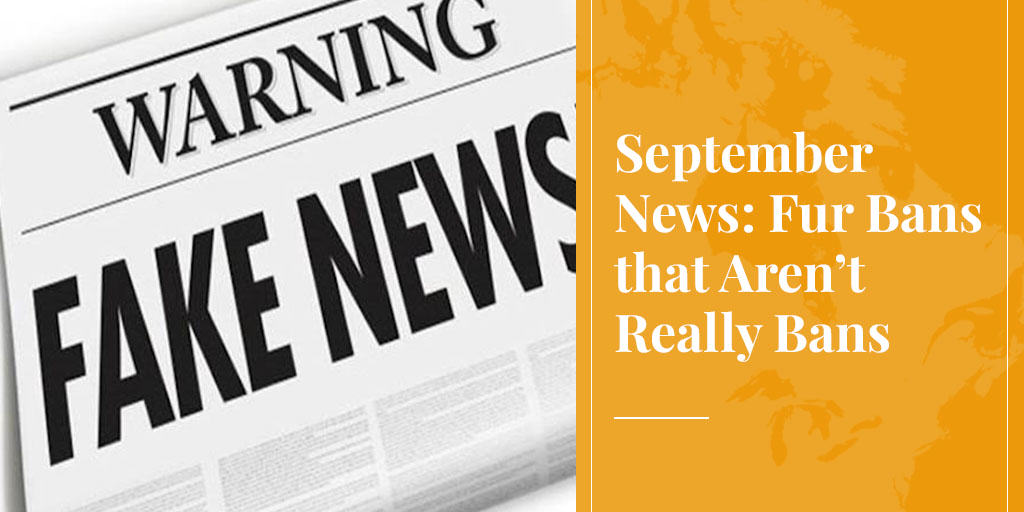
Two fur "bans" that aren't fur bans grabbed the headlines in September. Even if there's just a smell of a possible ban, animal rights advocates always trumpet it to the heavens because it increases pressure on policymakers to pass one if the media and public believe it's a fait accompli.
The Los Angeles city council voted to have legislation drafted that would ban fur retail and manufacturing. The proposal is facing stiff opposition, not just from the fur trade, but that didn't stop animal activists - and some of the media - from announcing a done deal. The Fur Information Council of America and the International Fur Federation are calling this "fake news".
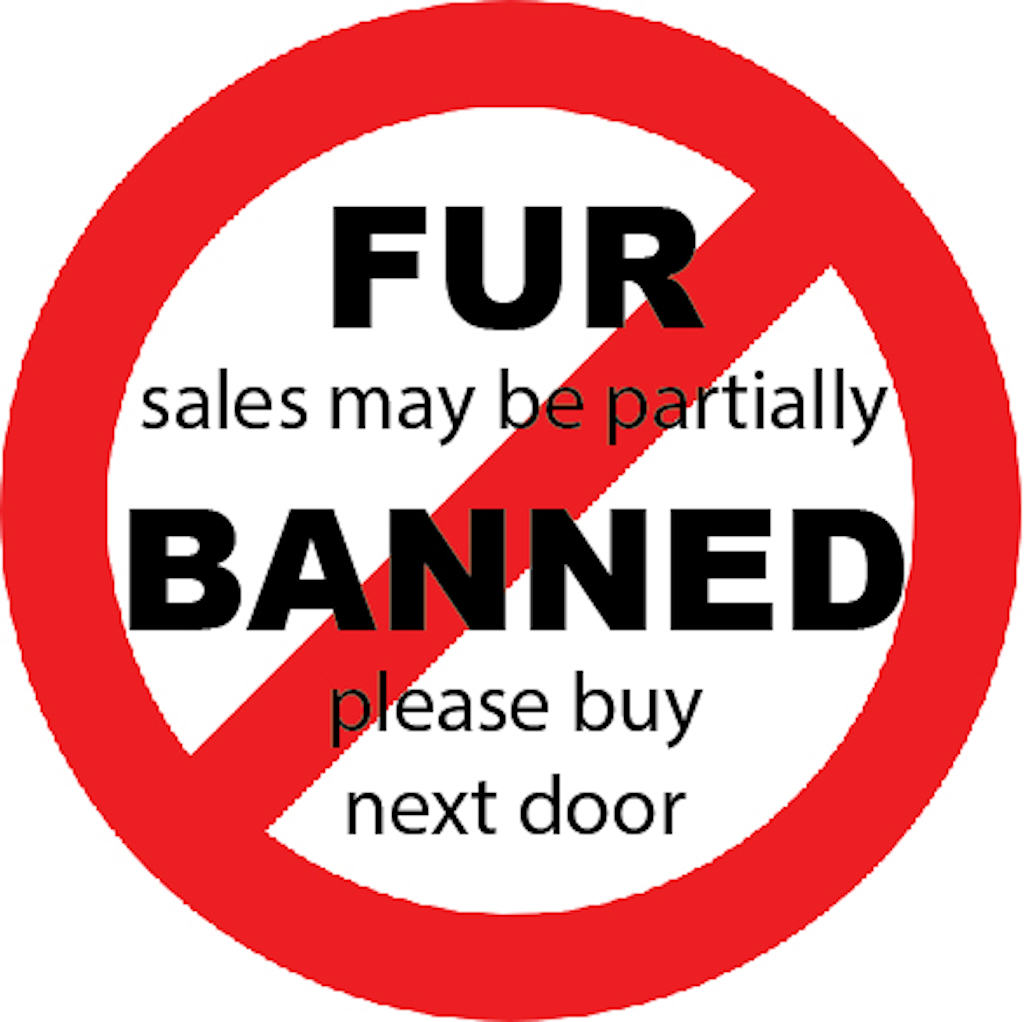
Most of the media, thankfully, realised that a ban is a long way from actually passing into law, have been sceptical about its merits, and have given space to opposing views. "LA should scrap its ban on fur," wrote Will Coggin of the Center for Consumer Freedom in the Washington Examiner. "Pro-fur officials challenge L.A. city council’s vote on fur sales ban," reported Women's Wear Daily.
The National Post gave voice to Nancy Daigneault and Mark Oaten of the International Fur Federation, who wrote: “This is public policy based on lies, flawed studies and false allegations as those proposing the ban have not proactively reached out to the fur industry to learn about the high animal welfare and environmental standards in place. Nor have they learned about sustainability in a meaningful way."
Another fur "ban" which wasn't really a fur ban was at London Fashion Week. The British Fashion Council, which organises the event, opted to play a risky game by announcing that no fur would be shown at this year's event. Of course, animal rights groups and much of the media announced this as a ban (see, for example, this article by Fashion Network), but the Fashion Council insisted there was no ban. It was simply a case of no designers choosing to show fur. So why did they even bother to announce it? Presumably in the hope animal rights activists would stay away.
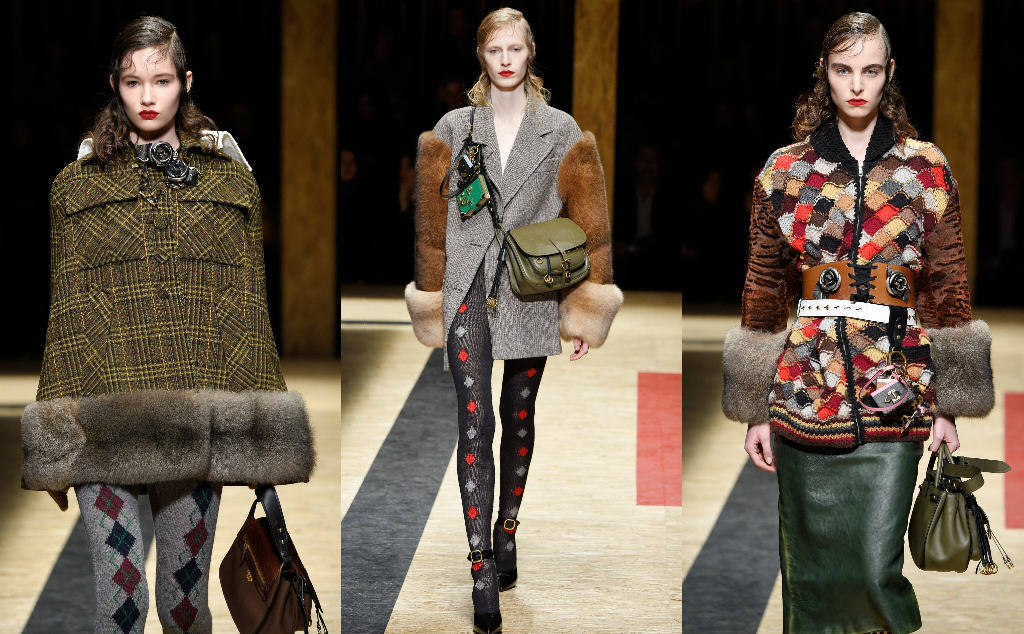
Meanwhile, animal rights groups continue to pressure designer brands to drop fur. The latest to fold is Burberry, and now the heat is being ramped up on Prada. Note again how activists and the media always refer to these as "bans" when they're nothing of the sort. Burberry (or whoever) has not "banned" fur; it's merely decided to stop using it for now. And almost all of these brands will continue using shearling (sheep fur), not to mention python, crocodile, and other exotic leathers.
As for how the trade will ride out this trend of fur bans (real or imagined), Truth About Fur's blog asks: "After the siege: What is the future of fur?"
Meanwhile, we all know how important social media are to animal activists, so here's an in-depth look at how they're used against the fur trade: "How social media is pushing fur out of fashion".
International Fur Federation News
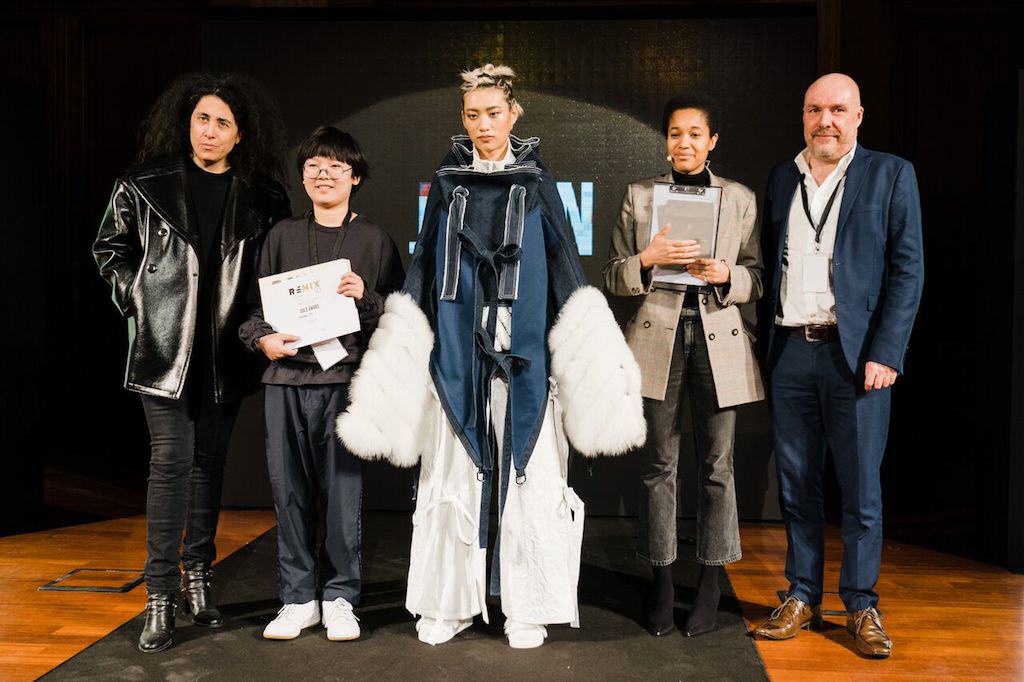
Last month, the International Fur Federation launched two fashion campaigns, the Natural Wonder campaign and the Fur Now campaign, to highlight the importance of responsible fashion, informed consumer choice, and the sustainability of fur.
Also, Women's Wear Daily ran a feature entitled "Fur: A sustainable, versatile choice" on Chunchen Liu, winner of the REMIX 2018 competition organised by the IFF with the support of Vogue Talents. (Download the whole issue in PDF here.) Having now produced a collection with Saga Furs, Chunchen is already proving herself an informed advocate for fur. "Fur has strong sustainable credentials," she told WWD. "Unlike comparable petroleum-based synthetics made of plastic, natural fur is a completely biodegradable material, which does not further burden nature. Every stage of fur production is sustainable. ..: Also, natural fur lasts for decades if professionally cared for, unlike chemical-based fur that ends up in landfill sites often after a single season. Fur can also be passed down through generations and remodeled and restyled in a variety of ways to keep it modern." We couldn't have said it better ourselves!
Picking on the Small Guy

Animal rights activists will pick on anyone, large or small, but they're never scarier than when they're going after small businesses.
Actress and fur lover Sarah Jessica Parker had hoped for a fun event to mark the opening of her new store in Manhattan, but instead the store was invaded by animal rights bullies chanting, "Fur trade, death trade." Fifty years ago, security would have thrown them headlong out the door, but if you do that today, their lawyers will be all over you.
Someone who can surely relate is Faye Rogers who opened a fur store in England and closed it in September after just four weeks. Business was good and then the protestors turned up, and 1,000 hate messages and threats arrived in four days from around the world. Said Rogers, "These trolls are hiding behind a mask of being vegan and animal-loving just so they can be nasty. They are bored and have nothing to do with their lives."
Meanwhile PETA has decided it wants to close down a New Brunswick company that processes lobster and crab shells into powder that is used in the bio-medical industry and as fertiliser. It sounds like a tremendous sustainable-use initiative, but of course PETA doesn't want us eating lobsters and crabs in the first place. And why not? "Lobsters are intelligent, sensitive people who do not want to be killed," according to a spokeswoman. You read that right, lobsters are "people"!
... and Some Good News
It's great to see that the company largely responsible for propelling coyote pelt prices to record levels is expanding its production. Canada Goose is about more than just coyote-trimmed, down-filled parkas, of course, but we should celebrate that a strong advocate both of fur and sustainable use is doing well. The new manufacturing facility, in Winnipeg, will be its seventh and largest, and create 700 new jobs.
